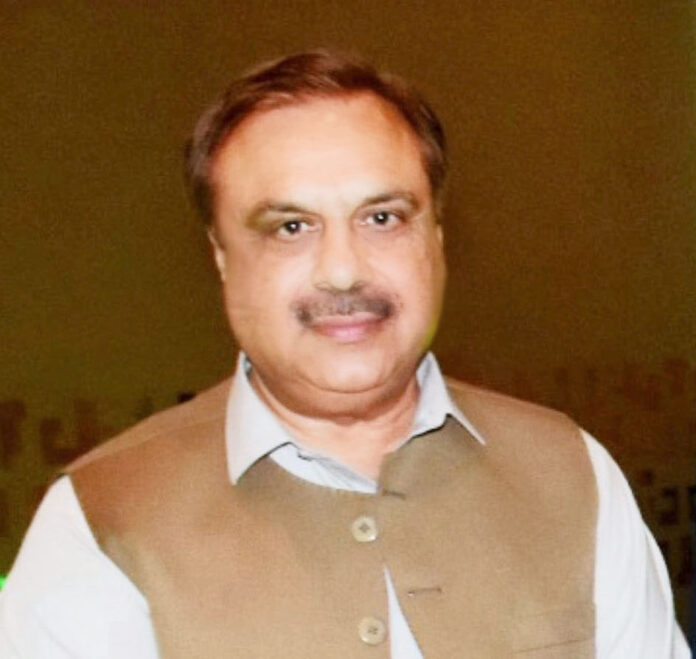Spokesman Report
Islamaad:Iftikhar Khan, the advisor to the president of the FPCCI, on Friday asked the State Bank of Pakistan to immediately lower interest rates due to the fact that headline inflation in July 2024 dropped to 11.09 percent, the lowest level since October 2021.
Because the fall is very beneficial to the economy, authorities need to be compelled to reduce interest rates. This would reduce the government’s burden of debt payments and benefit businesses, he said.
Iftikhar Khan stated that interest payments on debt currently consume between seventy-five and eighty percent of income, with the majority of the debt being domestic and originating from commercial banks.
He expects the interest rate to drop further to 9–10% by year’s end due to falling inflation.
He continued by saying that although oil and commodities prices are falling globally, the Middle East’s circumstances will also have an effect on inflationary pressures.
The current real interest rate is 8.4%, and it went positive in March 2024 following a 37-month hiatus. It has been increasing in positive territory ever since, which means the SBP should think about reducing the discount rate even further.
The business leader asserts that maintaining a high positive real interest rate poses significant threats to debt’s sustainability. High real interest rates raise the cost of borrowing, which increases the government’s debt servicing expenses.
He observed that high interest rates impose a strain on the state’s budget, particularly in the case of a nation that is already deeply indebted, such as Pakistan.
He said that there has been a rise in inflation in other domains such as food and drink, transportation expenses, and apparel and footwear.
He praised the administration for reaffirming its will to deal with the twin deficits, boost exports, and carry out tax, energy, and state-owned enterprise privatisation reforms.
The International Monetary Fund is in charge of this agenda since its board will likely approve a $7 billion, 37-month Extended Fund Facility for Pakistan during a meeting later this month.
Should the facility receive approval, it could potentially facilitate additional loans and international assistance, thereby enhancing investor confidence.
The twin deficits have posed serious obstacles to Pakistan’s economy, increasing inflation and reducing available funds for infrastructure projects.
The government’s goal is to lower these deficits by raising revenue and reducing wasteful spending because the country would have to implement reforms to exit the IMF.
Pakistan’s current fiscal year requires it to repay $24.8 billion in external debt. $21.2 billion of the $24.8 billion total comes from principal repayment, and the remaining $3.6 billion comes from interest payments.
According to the SBP governor, $22 billion of the gross funding requirements are for principal repayment, and the remaining $4 billion is for interest.
The government is encouraging the private sector to take the initiative and participate in the nation’s economy because it would not be involved in businesses run by the private sector.
He emphasised that the credit rating agency Fitch upgrading Pakistan’s rating, the central bank lowering the policy rate, and increased global confidence as a result of the IMF’s new lending programme all demonstrated the country’s macroeconomic stability.
Iftikhar Khan asserts that improving economic openness and privatising all public enterprises as soon as possible will reduce the amount of reliance on loans and save trillions of rupees.
The Ministry of Finance’s most recent consolidated report shows that during the fiscal years 2021 and 2022, the country’s state-run commercial companies suffered losses totaling an astounding Rs1.395 trillion.
This amount raises serious questions about the public sector’s operational effectiveness and financial management because it is more than twice as large as the Public Sector Development Programme.
He said that the government continued to prioritise development projects over expanding the nation’s exports despite resource constraints, which is praiseworthy.
He stated that there are opportunities for economic growth; these prospects require the removal of barriers to help the nation realize its vast potential and become self-sufficient. Businesses and the government face challenges, but there are also opportunities for economic progress.
Reports indicate that the authorities in Pakistan are now evaluating five bids submitted by Chinese enterprises to assist in raising funds through Panda bonds before making a final choice at this time, which is very encouraging, he said.



